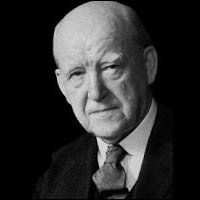Don't Confuse Justification with Regeneration or Sanctification
by John Murray, Ralph Erskine, William Perkins, James Ussher, James Buchanan
“The epistle to the Romans is concerned with this very subject, the justification of sinners. That is the grand theme of the first five chapters in particular. Romans 8:33,34 conclusively shows that the meaning is that which is contrasted with the word ‘condemn’ and that which is related to the rebuttal of a judicial charge. The meaning of the word ‘justify’ therefore, in the epistle to the Romans, and therefore in the epistle which more than any other book in Scripture unfolds the doctrine, is to declare to be righteous. Its meaning is entirely removed from the thought of making upright or holy or good or righteous.
This is what is meant when we insist that justification is forensic. It has to do with a judgment given, declared, pronounced; it is judicial or juridical or forensic. The main point of such terms is to distinguish between the kind of action which justification involves and the kind of action in regeneration. Regeneration is an act of God in us; justification is an act of God with respect to us. The distinction is like that of the distinction between the act of a surgeon and the act of a judge. The surgeon, when he removes an inward cancer, does something in us. That is not what a judge does—he gives a verdict regarding our judicial status. If we are innocent he declares accordingly.
The purity of the gospel is bound up with the recognition of this distinction. If justification is confused with regeneration or sanctification, then the door is opened for the perversion of the gospel at its center. Justification is still the article of the standing or falling church. (121)

 by Paul David Tripp
by Paul David Tripp by Martyn Lloyd-Jones
by Martyn Lloyd-Jones